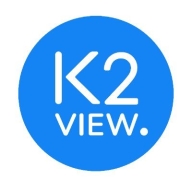

Teradata and K2View compete in data management solutions. Teradata leads with its scalability and data analytics capabilities, making it suitable for handling large-scale data tasks, while K2View stands out for its agility and efficiency in data virtualization and secure data delivery.
Features: Teradata is known for its advanced analytics, scalability, and integration capabilities. It is ideal for large-scale data management. K2View offers innovative data virtualization features, real-time data processing, and secure data delivery.
Ease of Deployment and Customer Service: K2View offers a straightforward deployment model and responsive customer service, which ensures smooth implementation and support. Teradata, while comprehensive in deployment, may require more initial setup.
Pricing and ROI: Teradata's setup costs are higher, but it offers substantial ROI for those with large data requirements. K2View, with lower initial setup costs, provides good ROI through agile and cost-effective data solutions, appealing to smaller and medium-sized businesses.

K2View is a platform used for managing and integrating large-scale data from multiple sources, enabling real-time access to unified data and streamlining data processes to improve decision-making.
K2View effectively builds efficient data fabric, creating detailed data views and reducing latency in data retrieval. It ensures seamless operations in business functions by managing and integrating large datasets from various sources. Its capabilities in data virtualization, real-time data access, and seamless data integration are highly regarded. Users value its flexibility, ease of deployment, and robust performance in data management and security. However, they seek improvements in documentation, more detailed implementation examples, better training resources for new users, and enhanced performance optimization and customer support.
What are the most important features of K2View?K2View is implemented across multiple industries, supporting finance, healthcare, telecom, and retail sectors in their data management needs. It handles complex data integrations, providing real-time access to comprehensive data views, thus transforming operations through improved data processes and streamlined decision-making.
Teradata is a scalable data analytics platform designed to meet enterprise demands for large-scale data management and processing, focusing on performance, scalability, and security for complex query executions.
As a leading data warehousing solution, Teradata integrates advanced analytics enabling organizations to derive insights from massive datasets. It supports high-volume data workloads with its architecture optimized for analytical queries. Users benefit from its robust scalability, allowing seamless expansion as data grows. Teradata's SQL engine is compatible with a wide range of data types, ensuring flexibility in data analysis. With advanced security measures, it protects sensitive data across various environments, providing peace of mind to users handling critical information.
What are the most important features of Teradata?Teradata is widely used in industries like finance, telecommunications, and healthcare, where data-driven decisions are critical. Companies leverage its robust analytics capabilities to enhance customer experiences, streamline operations, and ensure compliance with regulatory requirements. In these sectors, quick access to data insights can significantly impact competitive advantage.
We monitor all Data Integration reviews to prevent fraudulent reviews and keep review quality high. We do not post reviews by company employees or direct competitors. We validate each review for authenticity via cross-reference with LinkedIn, and personal follow-up with the reviewer when necessary.